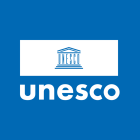UNESCO-EU Memorandum of Understanding

The European Union becomes gradually one of the strategic partners of UNESCO. The thematic dialogue and the financial cooperation with the European Commission and EU Delegations at the country level develop, in particular in the areas jointly identified as operational outcomes.
On 8 October 2012, UNESCO and the EU signed a Memorandum of Understanding with a view to enhancing the dialogue, strengthening cooperation and fostering an exchange of best practices.
The Memorandum of Understanding is based on long-standing cooperation between the EU and UNESCO, which include multistakeholder initiatives, such as the Global Partnership for Education to promote aid effectiveness and policy dialogue on education, supporting education in 48 partner countries; the International Task Force on Teachers for Education for All to help countries, especially in Africa, secure an adequate number of competent and motivated teachers; and the Global Learning Cities Network to promote adult and lifelong education. UNESCO has been particularly active on access to knowledge including through Information and Communications Technology (ICT) in education – in particular on its plans for an innovative, online platform offering free and open learning resources, as well as in science, technology and innovation.
Both UNESCO and the EU promote human rights and fundamental freedoms as cornerstones of stability and development, being equally committed to a more effective multilateral cooperation and to inclusive development rooted on quality education for all and the respect for cultural diversity.
Freedom of expression, the safety of journalists, and the stabilization of democratic processes are other examples of shared engagement, building also on education and culture as key vectors for development, for advancing human rights and for freedom of expression.
UNESCO and the EU cooperate also in the areas of civil protection and disaster preparedness, which includes joint work on prevention and reduction of the impacts of marine hazards and on sustainable early warning systems.
Building on UNESCO’s lead in the development of international legal standards in the area of cultural heritage preservation and promoting cultural industries, partnership between the EU and UNESCO also supports efforts for the governance of culture and national and local level through the effective grass-root implementation of the Convention on the Protection and Promotion of the Diversity of Cultural Expressions. The EU supports the implementation of this Convention through an Expert Facility for the Governance of Culture, from which 13 countries currently benefit.
A range of other projects are also implemented in partnership with the EU, including safeguarding world heritage, intangible cultural heritage (such as Egyptian traditional festivals and inventorying Mediterranean living heritage), preserving World Heritage sites (such as old Havana and Nablus old city), media development and promoting sustainable marine and coastal archaeology.

Log in with your EU Login account to post or comment on the platform.